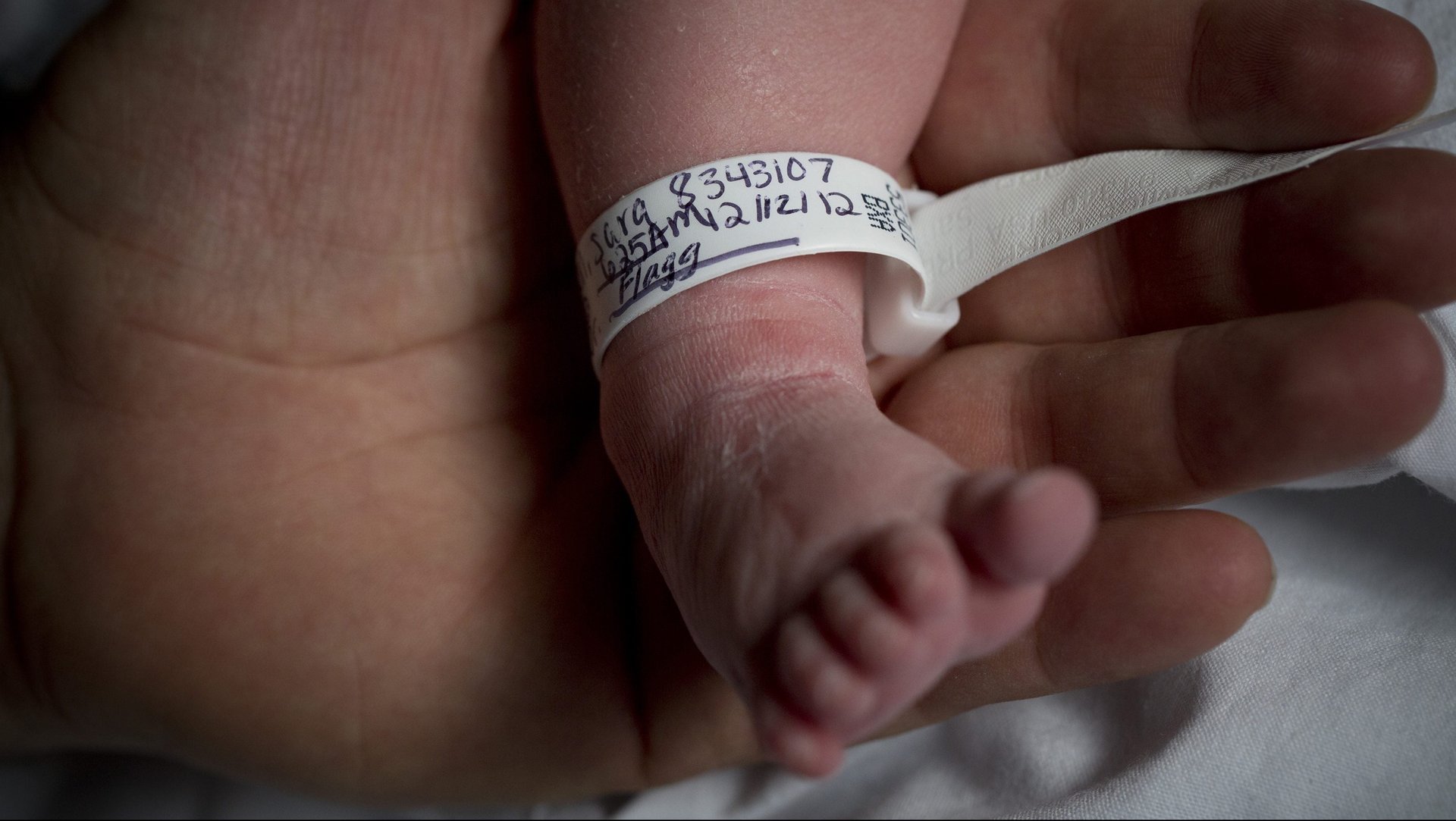Mothers in their 30s have a lower risk of premature birth than any other age group
Women in their 30s are used to hearing—from relatives, friends, and the occasional complete stranger—about being in the final stretch of their fertile years. After all, a pregnancy after 35 is, medically speaking, “geriatric.”


Women in their 30s are used to hearing—from relatives, friends, and the occasional complete stranger—about being in the final stretch of their fertile years. After all, a pregnancy after 35 is, medically speaking, “geriatric.”
Indeed, higher maternal age has long been associated with higher risks of pregnancy complications—particularly for women above 40. Yet a study published this week (Jan. 31) in PLOS, found something rather surprising: Mothers in their 30s appear to be less likely than their younger (and older) peers to give birth prematurely.
The research, led by Florent Fuchs, professor of gynecology at CHU Sainte Justine in Montréal, surveyed 165,195 births in 32 Canadian hospitals. (The study only included births to mothers of 20 years or older.) While the study found a direct correlation with increasing age and complications such as chronic hypertension, pre-gestational diabetes, gestational diabetes, and placenta praevia as well as an increased likelihood for the used of assisted reproduction techniques, it did not find a similar correlation with a risk of preterm birth, defined as any birth occurring after less than 37 weeks of gestation.
In fact, the trend for risk of premature delivery follows a U-shaped distribution: It’s higher before 30 and after 40, and at its lowest between 30 and 34.
The study broke down the pregnancies into five age brackets. Women between 20 and 24 years old had 6.8% chance of giving birth prematurely; the likelihood was 6% for mothers between 25 and 29; 6.3% for mothers between 35 and 39; and then climbed to 7.8 for women over 40.
Women between 30 and 34 had the lowest risk for a preterm delivery, at 5.7%. But another way to look at it is to break the groups down further into decades: overall, women in their 30s have a lower risk of giving birth prematurely than women in their 20s.